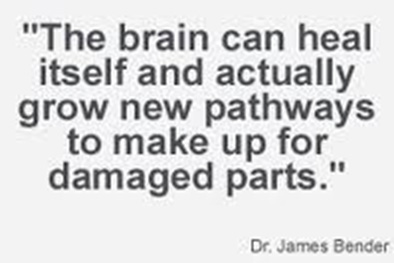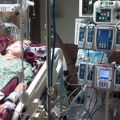Podcast: Play in new window | Download
Subscribe: Apple Podcasts | RSS
Hi, it’s Patrik Hutzel from INTENSIVECAREHOTLINE.COM where we instantly improve the lives for Families of critically ill Patients in Intensive Care, so that you can make informed decisions, have PEACE OF MIND, real power, real control and so that you can influence decision making fast, even if you’re not a doctor or a nurse in Intensive Care!
This is another episode of “YOUR QUESTIONS ANSWERED” and in last week’s episode I answered another question from our readers and the question was
You can check out last week’s question by clicking on the link here.
In this week’s episode of “YOUR QUESTIONS ANSWERED” I want to answer questions from one of my clients Stephanie as part of my 1:1 consulting and advocacy service! Stephanie’s mother is in post- cardiac arrest care in the ICU and she is asking if the ICU team has a one way solution to cardiac arrest which is pushing her to LTAC.
My Mother is in a Critical Condition in the ICU. Why Does the ICU Team Aim for Limitation of Treatment for Her?

Stephanie: Yep. It’s neurology, the Intensive Neurologist, and Dr. Philipps, who is the senior attending physician for ICU, that has been attending to Carmen for a while. There was another one, he was an Indian doctor. He seemed like he cared a little bit more than Dr. Philipps did, but Dr. Philipps is on it, too, because if his resident doesn’t do something or stops something, he’s on him. When they had that little meeting, he said, “Wait a minute. Are you doing this? Are you doing that? You’re going to do this, do that,” so it seems like he’s on it as far as that is concerned. I guess they do that to make sure they don’t lose their licence or whatever.
Patrik: Yeah, probably.
Stephanie: Make you think they really care.
Patrik: Yeah.
Stephanie: Yeah, exactly.
Patrik: Probably, probably.
Stephanie: Mm-hmm (affirmative).
Patrik: Okay, so-
Stephanie: Tomorrow.
Patrik: Tomorrow. Tomorrow, you have a meeting tomorrow?
Stephanie: Yes. We have a family meeting. We’re going to have dinner. I told them to be there at 6:00, and even though it’s going to be 6:30, I told them 6:00. I’m trying to figure out what time will be good to bring you on, because I’m thinking in the beginning. Because I really want to get my family to be able to have questions, and you can give us some feedback from what … You can get a flavour for where we are.
Recommended:
Patrik: Mm-hmm (affirmative).
Stephanie: You know what I mean? Not just Miranda.
Patrik: Yes.
Stephanie: While we’re all together.
Patrik: Yes.
Stephanie: We have a meeting Monday also, Patrik.
Patrik: Yeah, that’s fine. That’s fine.
Stephanie: That’s gonna be … It’s at 11:00. It’s 11:00 a.m. our time.
Patrik: Right. Tomorrow when you say you have a family meeting that is not in the hospital that is a family dinner?
Stephanie: Right.
Patrik: Right, right.
Stephanie: Like we did the other day. But this is going to be different-
Patrik: Yes.
Stephanie: Because we’re all going to be in the same room.
Patrik: Yes, yes. I understand.
Stephanie: Yeah. We’re all going to be in the same room. We’re not going to be one phone here, one phone there.
Patrik: Yes.
Stephanie: We’re all gonna be … yeah.
Patrik: Whereas on Monday you have a meeting in the hospital?
Stephanie: Yes.
Patrik: Right. Okay. Now I understand.
Stephanie: That’s with them in the-
Patrik: Yeah, yeah. Now I-
Recommended:
Stephanie: She’s only giving us a half-hour, because she has another meeting, I think, at around 11:30, right Miranda?
Miranda: Uh-huh (affirmative).
Patrik: When you’re saying, “She …”?
Stephanie: I assumed … I appreciate that. I’m talking about Dr. Reynolds. Dr. Reynolds is the Intensive Care Neurologist. She’s the one who did the report on the EEG.
Patrik: Okay, so she’s the Neurologist.
Stephanie: Yes.
Patrik: Right.
Stephanie: How do we bring you in on the meeting?
Patrik: Oh, yes.
Stephanie: Just the telephone call or-
Patrik: Yeah, yeah. You can bring me in on the phone, and you can … There’s a couple of ways you can go about it. One way is you can bring me in as … You could say I’m your cousin, or whatever, I don’t know, or you can bring me in as an Intensive Care Nurse.
Stephanie: Okay.
Patrik: I’ll leave that entirely up to you.
Stephanie: Uh-huh (affirmative).
Patrik: I’ll leave that entirely up to you. Sometimes it’s less confrontational-
Stephanie: I’ll say a friend.
Patrik: Or to be a friend. I’ll leave that up to you, because I don’t know the dynamics between you and the doctors really, you know?
Stephanie: That’s right.
Patrik: I have an idea, but I’ll tell you, some people think, oh, it’s much better if I say this is my cousin, this is my friend, and other people want me to be the “nurse consultant” right? I leave that entirely up to you. I can fit into whatever role you would want me to.
Recommended:
Stephanie: Okay. What we will do, we will discuss that at the meeting tomorrow-
Patrik: Yes.
Stephanie: And see what the family think.
Patrik: Correct, correct.
Stephanie: See what they think and how we want to present you.
Patrik: Correct, correct.
Stephanie: Now, we only have 30 minutes, so we need you to help us figure out what we need to confront. We’re not going to talk about the LTAC right now, I don’t think.
Patrik: No, no.
Stephanie: No.
Patrik: Do you think that this … Is it Michelle Reynolds?
Stephanie: Come again?
Patrik: Is the neurologist Michelle Reynolds? Because I’ve just Googled.
Stephanie: Go ahead. Yeah. That’s here name.
Patrik: Right, right.
Stephanie: Uh-huh (affirmative).
Patrik: Right, but she wouldn’t be the-
Stephanie: That’s who we’re meeting with.
Recommended:
Patrik: Yeah, yeah. No, no. I understand, but she wouldn’t be the main decision maker whether she’s going into LTAC or not. She wouldn’t be … That is usually something that would come from ICU directly. Or do you think she is the driver behind all of that?
Stephanie: I think she’s … What do you think, Miranda?
Miranda: I think it’s Dr. Philipps.
Stephanie: Yeah.
Patrik: Right.
Stephanie: Yeah. Mm-hmm (affirmative).
Patrik: Dr. Philipps is the ICU consultant or the cardiologist?
Miranda: The ICU guy.
Patrik: Right.
Stephanie: Senior.
Patrik: Yeah. He would most likely be the driver. He most likely would be.
Stephanie: Mm-hmm (affirmative). He is.
Patrik: He needs the bed. He needs the bed.
Stephanie: Mm-hmm (affirmative). He was using Dr. Reynolds’ report to try to convince us-
Patrik: Right.
Stephanie: That she needs to go.
Patrik: Right.
Stephanie: But he was banking on that. Like my sister said, one minute she said her brain was good, you understand what I’m saying?
Patrik: Yeah, yeah, yeah, yeah.
Recommended:
Stephanie: There’s no swelling, there’s no MRI. I said that in the meeting. The MRI was fine, her brain was fine. Basically, what’s the rush?
Patrik: Yeah, absolutely. Absolutely.
Stephanie: Yeah.
Patrik: Let me ask you this, do you know, at the time of hospital admission, because she was a cardiac arrest, there’s a very high chain. She would have been admitted under the cardiologist who did the stent, right?
Stephanie: They did.
Patrik: Right, right.
Stephanie: Yes.
Patrik: That is most likely her admitting doctor. Most likely.
Stephanie: Yes, it is. It was, yep.
Patrik: Right. He or she disappeared from the soil of the earth-
Stephanie: Yep.
Patrik: Probably because that job is done, right?
Stephanie: Yep.
Patrik: I would still, to a degree if you can, keep that person in the picture if you can, because at the end of the day-
Stephanie: Okay.
Patrik: At the end of the day, Carmen is that doctor’s patient.
Recommended:
Stephanie: Right. That’s what I thought. You’re right, because he would come and visit. Yeah. Yes. Yes, yes, yes. Maybe we can request that … He should be the one attending.
Patrik: Yes.
Stephanie: That meeting, right?
Patrik: Yes, yes. I think-
Stephanie: Not the Intensive Care Doctor.
Patrik: I think he should. I think he should. Because he might have a very different point of view compared to everybody else, and at the end of the day your mother came in under this doctor and not under the Neurologist.
Stephanie: Right.
Patrik: Not under ICU.
Stephanie: That’s right. That’s right.
Patrik: Right?
Miranda: Well, from the beginning that doctor was already saying that my mother had a slim chance.
Stephanie: Oh, yeah, yeah, yeah.
Patrik: What did you say?
Stephanie: Cardiologist.
Patrik: Yeah. What did the Cardio-
Stephanie: Go ahead, Miranda.
Miranda: He was like, he don’t think that they tell … He didn’t think … You know how they say if you lose oxygen for two minutes … He say he thought my mother had lost oxygen-
Patrik: Right, right.
Recommended:
Miranda: More than two minutes.
Patrik: Right. I see. I see. Right. Okay. So you think he had a fairly-
Stephanie: What she had really just said, but she didn’t say it again, was that … and it’s okay because she’s tired. She said, “That doctor said that he was trying to say our mother had a slim chance,” or whatever, whatever, whatever.
Patrik: Yeah.
Stephanie: Yeah. Because of the hypoxia.
Patrik: Yes.
Stephanie: Or anoxic whatever.
Patrik: Right, right. He had a negative view really.
Stephanie: Right.
Miranda: They all are.
Patrik: They all are. Yeah, yeah.
Miranda: The only thing that’s not negative is some of the RNs. The RNs are like, “We see cases like this.”
Patrik: Yeah.
Miranda: “This is a hopeful situation.” Then you can talk to another RN, and they be like, “Nah.”
Patrik: Yeah.
Recommended:
Miranda: “You understand, your mother is already in a vegetative state.”
Stephanie: She don’t like that.
Patrik: No.
Stephanie: Go ahead.
Patrik: What they are insinuating?
Stephanie: They shouldn’t even say that, because they’re not qualified even to say that.
Patrik: No.
Stephanie: Right, Patrik?
Miranda: They not saying it, but that’s what their insinuation is.
Stephanie: Mm-hmm (affirmative).
Patrik: Sure, sure. A vegetative state can be temporary.
Stephanie: Right.
Patrik: Right? One of the-
Stephanie: Right.
Patrik: Okay. If somebody is in an induced coma and we were talking about-
Stephanie: That’s right.
Patrik: The Phenobarbital on Wednesday, yes, that looks like a vegetative state, because your mother is on sedatives in an induced coma. Well, that looks like a vegetative state. She hasn’t even had a chance to come out of the induced coma, because she’s still on the Phenobarbital from what I understand. She’s still getting the Ativan, and they haven’t even optimised, from what I understand, the seizure management.
Stephanie: Mm-hmm (affirmative).
Recommended:
- YOU DON’T KNOW WHAT YOU DON’T KNOW WHEN YOUR LOVED ONE IS CRITICALLY ILL IN INTENSIVE CARE! (PART 1)
- YOU DON’T KNOW WHAT YOU DON’T KNOW WHEN YOUR LOVED ONE IS CRITICALLY ILL IN INTENSIVE CARE! (PART 2)
Miranda: They basically saying that all the medicine that she is on is nothing, like that Phenobarbital, they basically saying that’s not sedating her.
Patrik: Mm-hmm (affirmative). Yes, I understand that. I understood that from your message, Stephanie, that they are saying it’s a minimum dose. I understand that.
Stephanie: Right.
Patrik: Right? That’s fine. I accept that, but still, why can’t they take it off? Because that’s sedating her. That’s sedating her.
Miranda: They say it that’s what’s controlling the seizures.
Patrik: See? That’s right. That’s right. Which is, again, the neurologist’s job is to manage the seizures with … Trying to find out, okay, what does she need? How much Keppra does she need? How much Dilantin does she need? How much Vimpat does she need?
Recommended:
Stephanie: Yep.
Patrik: That would be their job now to maximise that. Not maximise. Once that’s optimised, then try and wake her up.
Stephanie: Mm-hmm (affirmative).
Patrik: Then remove the Phenobarbital, remove the Ativan, and try and wake her up and see what happens. That hasn’t happened.
Stephanie: No. They’re not even going there.
Patrik: No. That hasn’t happened.
Stephanie: They’re trying to get us to say forget it. What are you going to do for us? How are you going to … what are you going to do? How are you going to be able to help us on Monday to talk to them?
The 1:1 consulting session will continue in next week’s episode.
How can you become the best advocate for your critically ill loved one, make informed decisions, get peace of mind, control, power and influence quickly, whilst your loved one is critically ill in Intensive Care?
You get to that all important feeling of making informed decisions, get PEACE OF MIND, CONTROL, POWER AND INFLUENCE when you download your FREE “INSTANT IMPACT” report NOW by entering your email below!
In Your FREE “INSTANT IMPACT” report you’ll learn quickly how to make informed decisions, get PEACE OF MIND, real power and real control and how you can influence decision making fast, whilst your loved one is critically ill in Intensive Care! Your FREE “INSTANT IMPACT” Report gives you in-depth insight that you must know whilst your loved one is critically ill or is even dying in Intensive Care!
Sign up and download your FREE “INSTANT IMPACT” REPORT now by entering your email below! In your FREE “INSTANT IMPACT” REPORT you’ll learn how to speak the “secret” Intensive Care language so that the doctors and the nurses know straight away that you are an insider and that you know and understand what’s really happening in Intensive Care! In your FREE report you’ll also discover
- How to ask the doctors and the nurses the right questions
- Discover the many competing interests in Intensive Care and how your critically ill loved one’s treatment may depend on those competing interests
- How to eliminate fear, frustration, stress, struggle and vulnerability even if your loved one is dying
- 5 mind blowing tips & strategies helping you to get on the right path to making informed decisions, get PEACE OF MIND, control, power and influence in your situation
- You’ll get real world examples that you can easily adapt to your and your critically ill loved one’s situation
- How to stop being intimidated by the Intensive Care team and how you will be seen as equals
- You’ll get crucial ‘behind the scenes’ insight so that you know and understand what is really happening in Intensive Care
- How you need to manage doctors and nurses in Intensive Care (it’s not what you think)
Thank you for tuning into this week’s YOUR QUESTIONS ANSWERED episode and I’ll see you again in another update next week!
Make sure you also check out our “blog” section for more tips and strategies or send me an email to [email protected] with your questions!
Also, have a look at our membership site INTENSIVECARESUPPORT.ORG for families of critically ill Patients in Intensive Care here.
Or you can call us! Find phone numbers on our contact tab.
Also check out our Ebook section where you get more Ebooks, Videos and Audio recordings and where you can also get 1:1 counselling/consulting with me via Skype, over the phone or via email by clicking on the products tab!
This is Patrik Hutzel from INTENSIVECAREHOTLINE.COM and I’ll see you again next week with another update!







